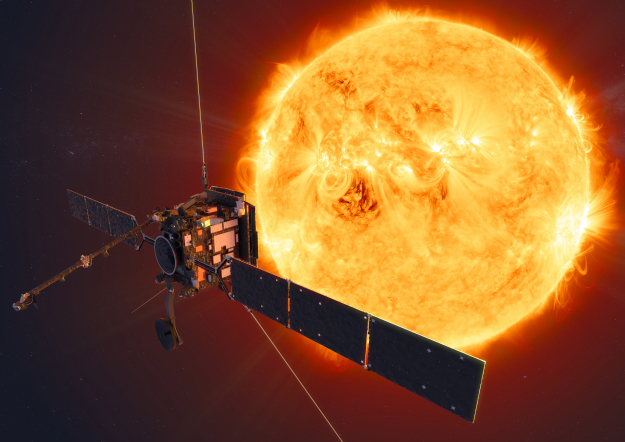
At the Natural History Museum, researchers have found that organisms may need to shrink to adapt to climate change. Through studying past extinction events they have discovered that body size is a key indication of an animal's ability to survive and reproduce. After past mass extinction events the average size of surviving species tend to be drastically smaller. Projections suggest that the degree of shrinking may vary between organisms, upsetting ecosystem balances and threatening human food sources such as crop plants and fish.
Butterflies are beginning to emerge from their cocoons earlier due to temperature changes. More than 90% of British butterflies emerge earlier in years with a warm spring or summer, Museum researchers have found - potentially too early for the plants they eat. This may have implications as Spring temperatures begin to increase, as butterflies may emerge without adequate food.
At Imperial College A new report by Dr Richard Carmichael from the Centre for Environmental policy showed that people want to do their part to help the planet, they just need a little help from the government. The report recommends that the government take policy actions to encourage low-carbon choices. These include investing in cycling infrastructure, reopening old rail and bus routes and introduce environmental labelling for food. The report will be extremely useful for policy-makers in creating greener policies in the future.
A team of undergraduates have developed a new technology to help the lab grown meat industry. Lab grown meat works by taking stem cells from an animal and placing them in a lab environment to grow. However, currently the cells used are taken from pregnant cows with raises ethical and financial issues. The team tackled one of the main financial barriers, which is the medium used to grow the cells. The team have developed a medium based on genetically engineered yeast which produces mammal cell growth factors, allowing the cells to grow effectively in the lab. They’re hoping this technology makes lab grown meat a cheaper option, getting it into supermarkets sooner.
Looking into space, a collaboration between Imperial College and other EU research institutions are preparing the Solar Orbiter for the launch site. A spacecraft on a mission to study the sun is due to leave Europe to prepare for it’s launch in 2020. The spacecraft was assembled in the UK by Airbus and is leaving for launch in Florida on top of the NASA Atlas V rocket.
In health news, researchers found that female mosquitos who have mated may be more likely to infect humans with malaria. Only females bite humans and pass on malaria. However, a new finding suggests that mated females are more likely to pass on malaria to their host. During mating, males pass on a material called 20-hydroxyecdysone (20E), which affects egg production. 20E also affects the susceptibility of the female to malaria , making them more likely to infect humans. This may be good news as targeted interventions which focus on males may have an even larger impact by not only decreasing the population, but making the females left less likely to pass on malaria.
Obesity intervention may need to occur earlier than we thought, with an international group of researchers, lead by Imperial found genetic variants which take effect in childhood development, around the age of 4. Factors such as diet have more impact on our weight as we age, however, important genetic contributors in early development appear to steer us in healthy, or not-so-healthy lifestyles.
This is just a snapshot of all of the great research happening in South Kensington. To find out more about the most up to date research news check out the Imperial College research news website and the Natural History Museum's research website.


